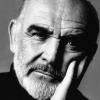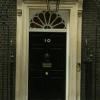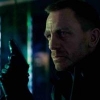Too soon?
Well, it´s been four months since I had last seen the film (for the second time) in the cinema. And I have blabbered on in numerous thoughts about my disappointment with so many aspects of the film, including Sam Mendes´ narrative choices and Hoyte van Hoytema´s cinematography.
Also, I made an about face after my second viewing, appreciating the film much more - and then flip-flopping again in time, thinking of all the ways the film could have been better.
Wait. Better? As in "how I would have made the film"?
It´s a strange thing being a fan. One feels a certain ownership of the object of one´s obsession, being (not always so) secretly convinced that one knows... well... more than the filmmakers themselves. And that one would have been more courageous, truer to the source, more inventive and daring.
Of course, that is one element that makes the discussion on a message board so interesting and fun. There ARE great ideas being exchanged here, creativity that a Bond film would benefit from.
But.
Just as nobody would make a Bond film like I would does not mean that Sam Mendes should make a film like I would. To put it in other words: SPECTRE is, of course, Sam Mendes´ vision. If it differs from mine it does not mean (oh, really?) that it is any worse than mine. And besides, how many films have I directed so far?
Watching SPECTRE for the first time in a press screening I was excited until the end of the car chase in Rome. From then on I was getting restless, trying to reconcile my hopes (provoked by the trailers) with what actually ended up on the screen. After the finale in London I was a bit crushed. The cinematography was far from the painterly Roger Deakins´ brilliance, after the delicious introduction of Spectre and its mastermind the plot was not fulfilling its potential, Christoph Waltz was underused and not nearly as menacing as Silva, and the ending was weak, offering lackluster action.
Then, the second time, I tried to just sit back and enjoy everything - but it was only two weeks since the press screening, and most of the film was still too familiar to really make a difference for me. But I wanted to like it. I really felt this strong urge to even love it since - hey, it´s a new Bond film from the team that brought me so much pleasure with SKYFALL - and who knows when I´m able to see the next one?
Maybe that´s why the problems I had with SPECTRE the first time re-appeared after the (second) honeymoon-period faded. I had not really been able to look at the film without those damn expectations that had kind of ruined the film for me the first time.
Now, it´s been long enough to actually look forward to revisiting SPECTRE, and I have to say, even with some days having gone by now, I have fallen in love with the film. And I get the strong feeling that this feeling is here to stay.
Here is why everything that did not work for me before worked for me now:
- On blu-ray, the cinematography, of course, did not turn into a Roger Deakins-composition festival. The colour-grading was the same, naturally, and the colour-palette still was mainly consisting of white, black, grey and orange.
But again - this is not the same film as SKYFALL. It dares (and needed) to find its own voice. And finally, even I could understand and appreciate this. The "hot & cold"-idea of Mendes, "heaven & hell", "fire & ice" absolutely corresponds with the narrative and - yes - works. Why did I desperately hope for a second Deakins-like look when it wasn´t even Deakins doing the job? Expectations. Wrong ones.
- The meandering narrative after Rome actually did not feel so meandering to me anymore.
The Mr.White-sequence is eerily effective and a fitting end to this character.
It nicely leads to the Madeleine-sequence (which features absolutely brilliant dialogue) and an action sequence that felt uneventful during my first viewings but actually is typically Bondian (the ongoing destruction of the plane still does not keep Bond from doing what he needs to do).
Then the Tangier-sequence, which felt extremely slow to me before, was a much needed slowing down, something the early films always offered, and suddenly I even got emotionally involved with Bond enduring Madeleine´s contempt and careful opening up.
Then the absolutely brutal entrance of Hinx and the devastating fight with Bond. I love the moment when Bond loses any strength, helplessly aiming for Hinx after giving everything he got - and then Madeleine shooting Hinx (subtly prepared by her gun-story on the train) which still does not stop him.
Then the moment in the desert. I was very critical of this, asking on this board why Bond does not have any plan seeking out the secret base. But this time I really felt that this was not only Bondian, too (what else does Bond in Dr.No when he sets out for the island?) but also part of Bond unable to know that his smart blood will not bring in the cavalry (like the radio did on Silva´s island) since M has ordered to delete any data, and rightfully so, since Spectre already has access to them and used this knowledge to send Hinx after Bond.
And then - yes - Christoph Waltz. I was absolutely wrong. He is not doing his Waltz-schtick. Instead he delivers an extremely underplayed performance. Look and listen closely, and one discovers how his tone constantly changes ever so slightly. The total opposite to Bardem´s grand guignol-acting in SKYFALL, Waltz´ portrayal achieves its menace by making Blofeld´s insanity matter-of-factly. The way he explains to Madeleine how tragic it will be when Bond looses his memory is bone-chilling... and at the same time amusing as hell. Was Waltz underused in the film? No, I don´t think so anymore. It´s exactly this subtle use of him in a few scenes which makes him more effective than parading him around in too many scenes.
The torture sequence also works for me now - since it actually is all about Blofeld getting into Bond´s head, literally. He always tried to interfere and toy with him. Now he does it, thinking it´s for the last time - but Bond again turns the tables. I love the moment when Bond asks "Do you do any other bird voices, Franz?" and Blofeld reacting very annoyed by it. Maybe so annoyed that he fails hitting the right spot in Bond´s head.
There is something unreal about Bond blowing up the base and every of Blofeld´s goons after that. But this time I was ready to accept this as Bond´s suppressed anger and pain finding a way of deadly expression. Something that saves him and Madeleine but which also proves to her that this is not the man she wants to live with; she needs the Bond of the Tangier scenes, someone who is not the blunt instrument but a man capable of love, fear and, yes, sanity.
And the film cannot end at this base. It has to give Bond and Blofeld another chance to confront their anger at each other, and the blackness of this sequence corresponds with the choices of the cinematography and location. It all makes sense, bringing things full circle in the old, demolition-ready Mi6-building.
Does Bond escape with Madeleine and bring down Blofeld´s helicopter too easily? Yes. But again - like Bond´s gunning down of Blofeld´s helpers at the base, this sequence is not about giving us more spectacle. It is about fate. Blofeld cannot escape Bond´s grasp. Bond will bring him down. But... in a kind of replay of the ending of QUANTUM OF SOLACE Bond does not choose instant gratification. However, when he chose not to kill Yussuf, it still felt as if Bond made this choice with his head, not his heart. He knew his life in the service would have been over if he had killed without thinking, without really using his licence to kill as M defines it in the scene with C: "A licence to kill is also a licence not to kill." And Bond finally makes this choice with his head AND his heart, taking revenge on Blofeld by walking away, having "something better to do".
That´s why I now embrace the choice not to end the film on the proposed line "We have all the time in the world". It would have set up a tragedy. But SPECTRE actually is about Bond winning, getting rid of this ghost that has haunted him for too long. And that´s the reason why Bond is much more relaxed than ever before during the Craig era. He has learned to cope with tragedy and to turn it into victory. Even more than that: Bond is at peace at the end of SPECTRE. And this - like so many aspects of the film that subtly subvert the usual tropes (think of Mrs. Sciarra surviving despite being the obvious sacrifial lamb) - is kind of revolutionary within Craig´s tenure.
Am I trying to explain away everything that I formely tried to base my criticism on? Yes, I do. But I am absolutely convinced that now I finally have been able to appreciate SPECTRE for what it is, instead of snarking about what it isn´t.
This is Sam Mendes´ vision. And, for me, finally, it works. Absolutely.
And I am looking forward to watching SPECTRE again and again. Something I could not say before.








